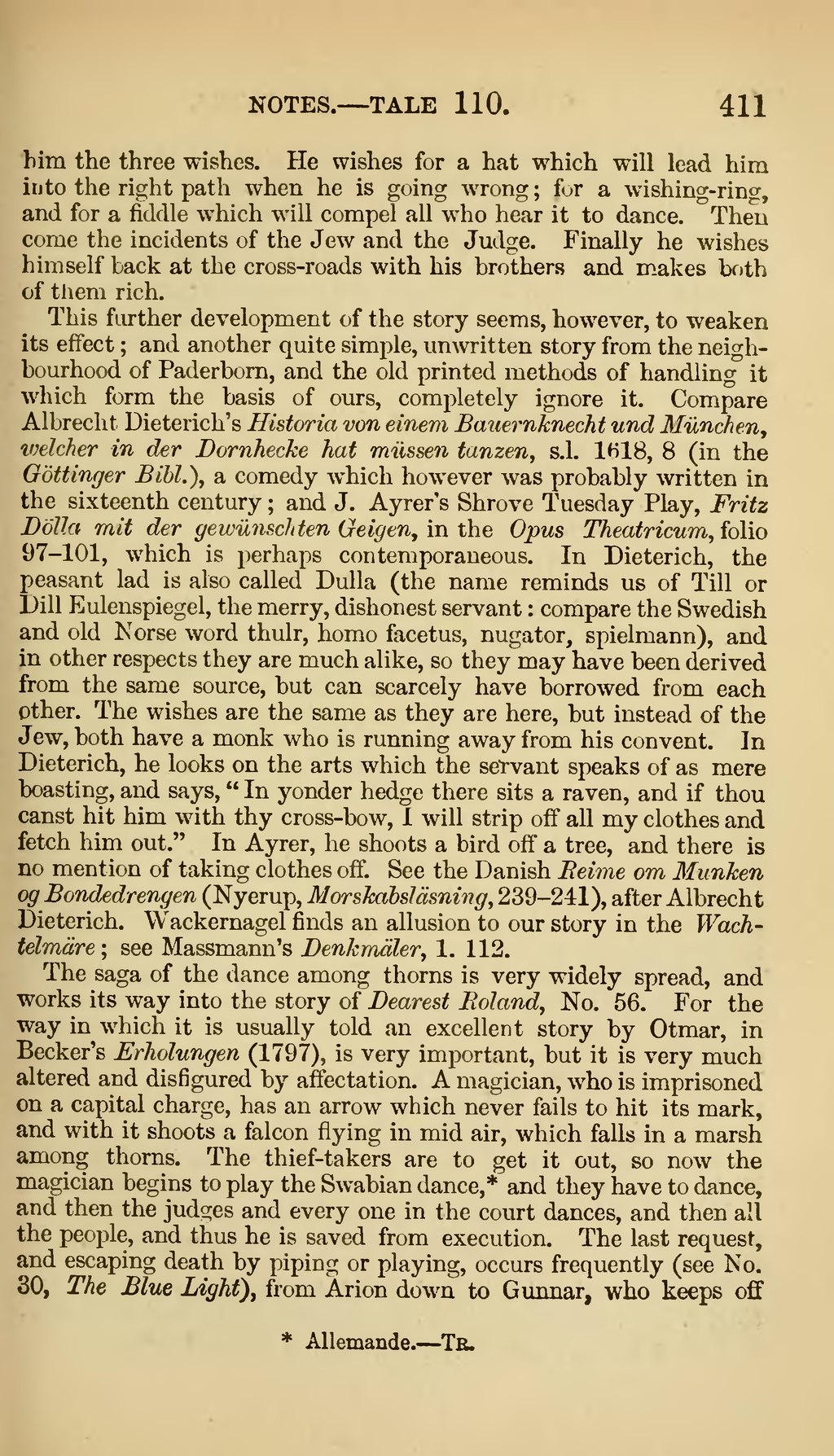him the three wishes. He wishes for a hat which will lead him into the right path when he is going wrong; for a wishing-rino-, and for a fiddle which will compel all who hear it to dance. Then come the incidents of the Jew and the Judge. Finally he wishes himself back at the cross-roads with his brothers and makes both of them rich.
This farther development of the story seems, however, to weaken its effect; and another quite simple, unwritten story from the neighbourhood of Paderborn, and the old printed methods of handling it which form the basis of ours, completely ignore it. Compare Albrecht Dieterich's Historia von einem Bauernknecht und München, welcher in der Dornhecke hat müssen tanzen, s.l. 1618, 8 (in the Göttinger Bibl.), a comedy which however was probably written in the sixteenth century; and J. Ayrer's Shrove Tuesday Play, Fritz Dolla mit der gewünschten Geigen, in the Opus Theatricum, folio 97-101, which is perhaps contemporaneous. In Dieterich, the peasant lad is also called Dulla (the name reminds us of Till or Dill Eulenspiegel, the merry, dishonest servant: compare the Swedish and old Norse word thulr, homo facetus, nugator, spielmann), and in other respects they are much alike, so they may have been derived from the same source, but can scarcely have borrowed from each other. The wishes are the same as they are here, but instead of the Jew, both have a monk who is running away from his convent. In Dieterich, he looks on the arts which the servant speaks of as mere boasting, and says, "In yonder hedge there sits a raven, and if thou canst hit him with thy cross-bow, I will strip off all my clothes and fetch him out." In Ayrer, he shoots a bird off a tree, and there is no mention of taking clothes off. See the Danish Reime om Munken og Bondedrengen (Nyerup, Morskabsläsning, 239-241), after Albrecht Dieterich. Wackernagel finds an allusion to our story in the Wachtelmäre see Massmann's Denkmäler, 1. 112.
The saga of the dance among thorns is very widely spread, and works its way into the story of Dearest Roland, No. 56. For the way in which it is usually told an excellent story by Otmar, in Becker's Erholungen (1797), is very important, but it is very much altered and disfigured by affectation. A magician, who is imprisoned on a capital charge, has an arrow which never fails to hit its mark, and with it shoots a falcon flying in mid air, which falls in a marsh among thorns. The thief-takers are to get it out, so now the magician begins to play the Swabian dance,[1] and they have to dance, and then the judges and every one in the court dances, and then all the people, and thus he is saved from execution. The last request, and escaping death by piping or playing, occurs frequently (see No. 30, The Blue Light), from Arion down to Gunnar, who keeps off
- ↑ Allemande.—Tr.
